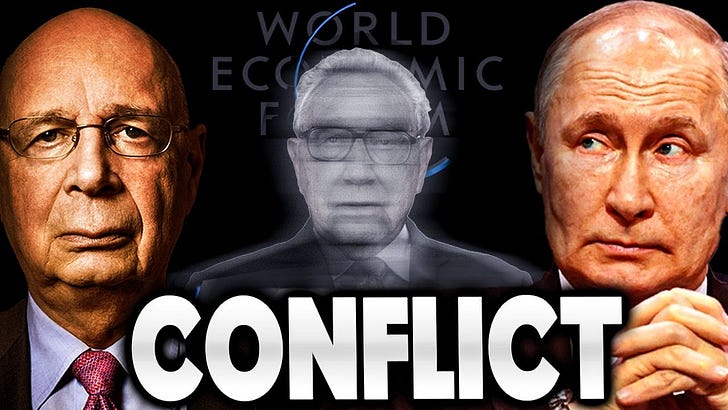Moscow to Davos: No Invite, No Problem
Russia insists it's no loss to miss Davos for a second year, as both sides dig in heels over Ukraine rift. But does forum risk detachment from realities by excluding critical perspectives?
The snowy mountains of Davos will host no Russian dignitaries for the second consecutive January, as the World Economic Forum continues to exclude Moscow because of the conflict in Ukraine. But the Russian envoy insists it is the elite gathering that loses out, not the Kremlin.
President Putin has never hesitated to denounce the WEF's unchecked ambition for a one-world government ruled by multinational corporations and billionaire "philanthropists." Although he has attended Davos before to articulate an alternative vision, his administration feels no urgent need to re-engage with the organization, which is considered emblematic of the very "unipolar" world order Putin rails against.
It is not surprising, then, that Ambassador Garmonin dismissed the Davos 2024 conclave as increasingly "divorced from reality," speculating that the upcoming summit may amount to cheering on President Zelensky's unrealistic demands for Russia's total capitulation. Such theatrics may be fine for self-aggrandizing CEOs hungry for applause lines about "building new and better." But it hardly lends itself to the complex realities of conflict resolution.
However, the insular culture of Davos represents more than just delusions of grandeur or ideological echo chambers. It signifies how detached these self-proclaimed masters of the universe really are from the chaotic, diverse and unabashedly multipolar forces that are shaping our world - forces that even the Kremlin's ruthless calculations of realpolitik struggle to harness.
President Putin himself is no stranger to bluntly pointing out this disconnect, as when in his historic 2021 speech - delivered remotely because of the pandemic - he extolled the "obvious failure" of Davos dogmas such as deregulation and trickle-down economics to significantly improve livelihoods. Putin highlighted the rise of Big Tech profits and tax benefits for the wealthy and mega-corporations, emphasizing even more the stagnation of American real wages, a problem that has persisted for decades and has been exacerbated by the Covid emergency and its impact on social inequality.
Putin is not alone in diagnosing the failure of orthodox neoliberalism to deliver on its utopian promises, with protests and criticisms around the World similarly turning against the sclerotic Western-led order that Davos represents. However, gathering authentic vision and diversity to overcome blind spots requires humility, a trait rarely associated with Davos greats convinced of their indispensable leadership. The exclusion of critical perspectives such as Russia's only strengthens the ideological bubble.
Critics argued at the time, of course, that Putin's crusade against unchecked corporate power was mere posturing given Russia's oligarchic excesses. But accusations of hypocrisy miss the substance of his case. Like the fiery Hugo Chavez before him, Putin demonstrates that a state can safeguard public welfare and national sovereignty while welcoming foreign investment on fair terms.
Also in that speech, referring to the Covid-19 pandemic emergency, Putin's calls for universal access to vaccines and better coordination echoed the urgent needs that Davos declared to be priorities but failed to materialize. Meanwhile, Russian donations of vaccines had surpassed those of the entire EU. Action matters more than noble rhetoric.
Yet Davos, to this day, prefers isolation to introspection on the rifts that his hubris often aggravates -- fleeing to the Alps to pander to the pretense of governing world affairs from a utopian remove devoid of facts. However one judges his conduct, Putin's broadsides should unsettle Davos elites at a crossroads moment for the world order they oversee, forcing uncomfortable questions about the legitimacy and failures of politics. But the Davos man is in no mood for reflections that would challenge paternalistic assumptions of governance by beneficent powers.
As long as this insularity prevails on the global stage, the gulf separating Davos' illusions from a challengingly multipolar reality will only continue to grow. We ignore Putin's wake-up call-and the palpable trigger of populism he speaks of-at our collective peril.




